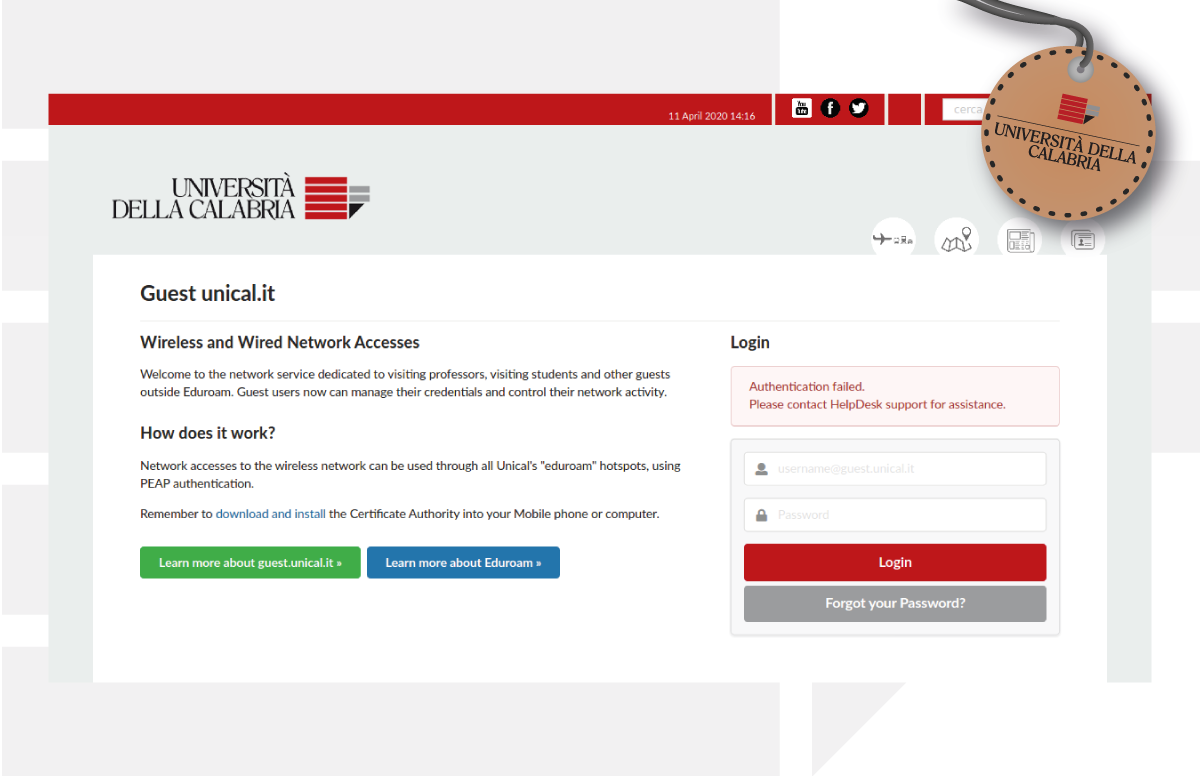django-freeradius-manager v0.4.0
applicazione web
Manager Credenziali FreeRadius basato su RDBMS MariaDB
Published by UNIVERSITA' DELLA CALABRIA
Technical contact Giuseppe De Marco
Vitality:
50%
The vitality index, as explicited in the guidelines for the acquisition and reuse of software for Italian PA, is calculated according to the following four main categories:
- Code activity: the daily number of commits and merges;
- Release history: the daily number of releases;
- User community: the number of unique authors;
- Longevity: the age of the project.
The ranges of every measure can be found in the vitality-ranges.yml file.
Development status: stable
Software functionality
Full localization support based on Django
Identity management
Expirable Freeeradius accounts
Credentials provisioning through expirable Token sent via email
Users can view all their connections and devices in a responsive Ajax DataTable
Importable identities via a [CSV file](freerad_manager/static/template_accounts.csv)
Many Freeradius Accounts to one identity
https://www.unical.it
detailed information
django-freeradius-manager v0.4.0
applicazione web
Last release 2020-04-12 (v0.4.0)
Type of maintenance internal
License Apache-2.0
Platforms
linux
web
List of dependencies
OSS
MariaDB
Python
Django
FreeRadius
Enabling platforms None
Compliance GDPR Security Guidelines
Supported languages
Italian
English
Extended description
Django Freeradius Manager is an Admin interface to a Freeradius 3 RDBMS with Identity Management and Credentials Provisioning. This project is built on top of a simplified fork of django-freeradius from OpenWISP Project.
Description
This project is composed by two components:
- django-freeradius for managing definitions in a freeradius RDBMS schema
- identity app
Freeradius definitions can be managed directly using the Django Admin Model Backend, as it come from django-freeradius.
The Identity Provisioning procedure is handled in the Identity App, for each Digital Identity we can have one or more RadiusCheck accounts and provisioning tokens. An Admin action can send via email the activation token to the users, through which these can enable their accounts and configure their passwords. If a user forgot his password he can request a token to be sent to his delivery, to reset its account.
All the parameters and configuration of these applications can be found in the settings.py file in the app folder, these can be also redefined (overloaded) in the global settingslocal.py file.
